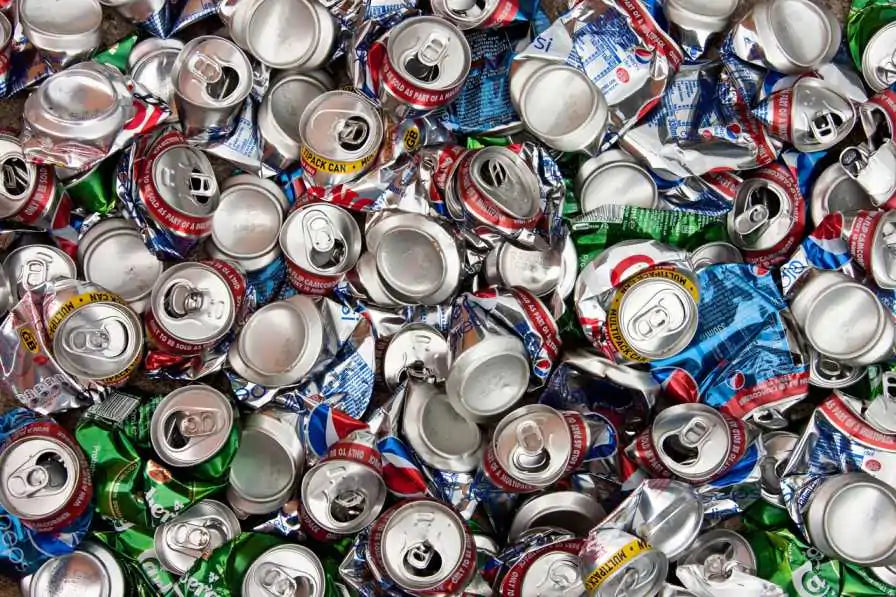Your basket is currently empty.
Shop NowIn the News: The Recycling Stories Making the Headlines

In the News: The Recycling Stories Making the Headlines
Survey Says UK Consumers Want More On the Go Can Recycling Facilities
A survey by the Aluminium can recycling campaign Every Can Counts has found that 60% of consumers in the UK would like to see more ‘on the go’ recycling facilities for drinks cans.
The survey asked 10,000 people who attended sporting and music events last year what they thought of recycling facility provision and how recyclable they thought their cans were. Most people said that they wanted to see more recycling facilities on UK streets, while 56% said more were needed at beaches, and 51% said they wanted to see more at music and sporting events.
What people know about aluminium can recycling…and what they don’t
58% of respondents to the survey rightly said that aluminium cans were one of the most recyclable drinks containers, but over half of people didn’t know that aluminium cans can be recycled indefinitely and 28% didn’t realise that the average recycled drinks can only takes 60 days to return to the shelf as a brand new can.
If you class yourself as being in the ‘I didn’t know’ category, here are the facts on aluminium cans and how they are recycled:
Each year, it’s estimated that each household in the UK consumes around 340 aluminium drinks cans every year, and around 75% of these are recycled. Recycling aluminium, just like any recyclable material preserves precious natural resource, saves energy, and reduces the amount of waste that ends up in landfill.
How aluminium cans are recycled
Cans are melted down and used to make new cans, and as we mentioned earlier, your recycled Diet Coke can will end up back in the shop as a brand new can in as little as 60 days. Here’s how aluminium can recycling works:
The cans are collected
The cans are collected from homes, can banks, and ‘cash for cans’ facilities. From here they are then transported to a recycling facility where they are usually checked for any contamination, before being put into bales.
The cans are recycled
The cans are shredded into small pieces and any logos or writing on the cans is removed by blowing hot air on the shredded pieces. The pieces are then melted in a furnace and become molten metal. The molten metal is put into moulds and cooled off where it hardens and forms an ingot (block).
New cans are made
The aluminium blocks are rolled out into sheets, lubricated, and fed through a press to make a shallow cup shape. The aluminium is then forced through rings which creates the sides of the can, and then each is can is cleaned, ready for decorating with logos and labelling.
Before logos and writing can be applied, the can needs to be treated with lacquer. Once the decoration is on, the cans are dried out in an oven.

They are filled with a delicious beverage
The cans are cleaned once again and any air is extracted before the can is filled with carbon dioxide. The liquid is added to the can then it’s mechanically sealed to protect the content and prevent any nasties from getting in. The cans are then packed and sent to wholesalers and retailers.
Aluminium recycling is good…but could be better
The Aluminium Packaging Recycling Organisation (Alupro), which runs the Every Can Counts campaign, say that recycling aluminium saves a whopping 95% of the energy that would otherwise be used to make new cans from raw materials and that this helps reduce greenhouse gas emissions. It adds that while the aluminium can recycling rate is currently at around 75%, this could be increased further.
A spokesman for Every Can Counts said that surveys like the one it carried out last year may help it understand what customers know about recycling and what barriers exist to prevent them recycling more. He added that the dream is a 100% aluminium recycling rate.
Could that dream become a reality?
But it’s not just the aluminium industry that has recognised that customers want and need more on the go recycling facilities. The UK government and Scottish ministers have consulted on, and drawn up proposals for, a deposit return scheme, where customers would get money back in return for taking cans and bottles back to retailers for recycling.
The Scottish government is proposing adding a 20p charge to drinks, which would be returned to customers when they return drinks containers for recycling. The UK government will hold another consultation on a DRS this year with a view to the introduction of a scheme in 2023.


